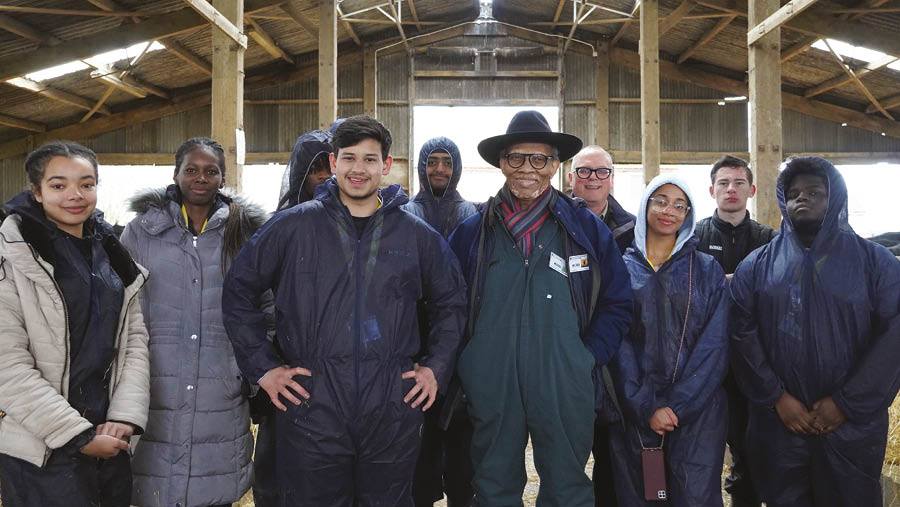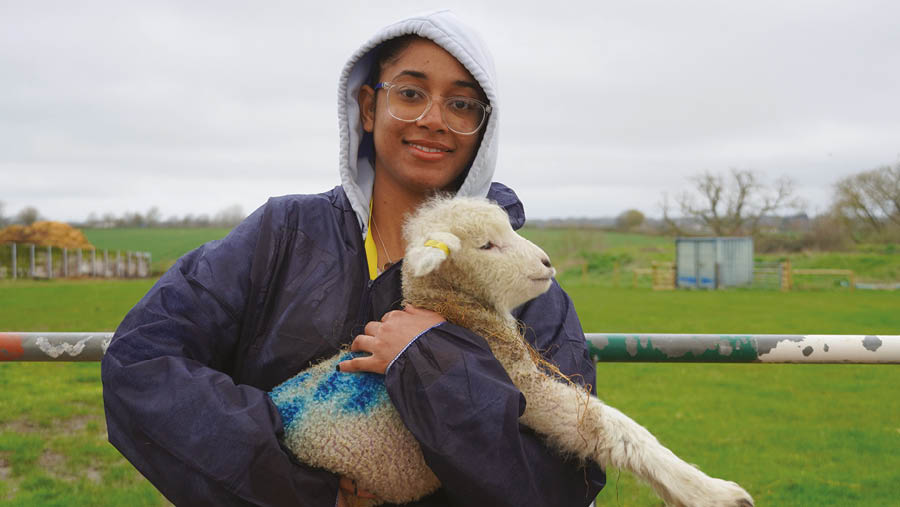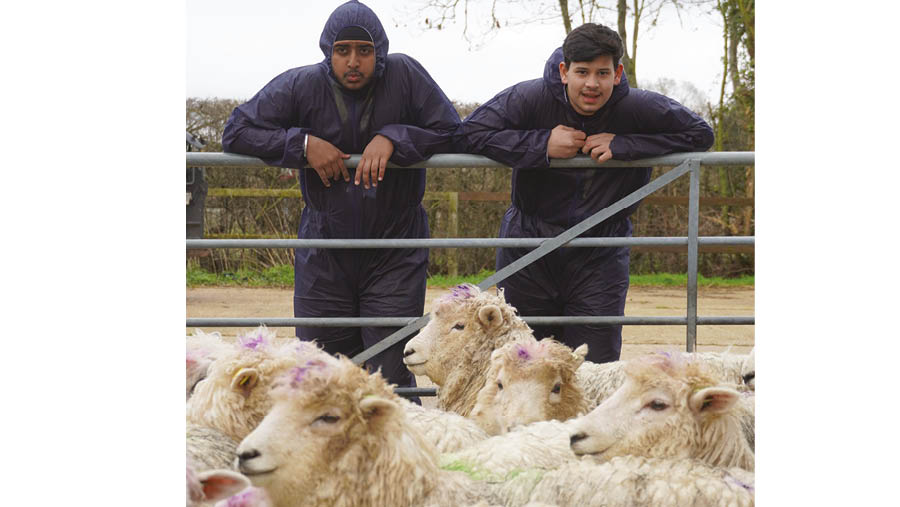Success for first ‘New Faces for Farming’ weekend
 © Writtle University College
© Writtle University College Wilfred Emmanuel-Jones, the man behind The Black Farmer brand, is on a mission to bring diversity to the agricultural sector and inspire new entrants into the industry.
The high-profile farmer and marketer recently launched his New Faces For Farming initiative, welcoming a group of teenagers, aged 16-18, to the Writtle University College farm near Chelmsford, Essex.
See also: How farmers are helping to educate school children about agriculture
The scheme is targeted at teens from urban and under-represented backgrounds, and for many the weekend proved to be their first experience of agriculture.
Hailing from inner-city Birmingham, for Mr Emmanuel-Jones the initiative is inspired by his own upbringing.
He said: “This year is the 75th anniversary of Windrush. I’m of the Windrush generation, and what a lot of people don’t realise is that people who came over during the 1950s came from rural backgrounds and farming communities, but they ended up in the towns and cities where the work was.
“Even though they may have had a passion or enthusiasm for farming, there was nowhere where they could go to see if there were any suitable jobs in that industry.
“My father had an allotment, like many of the people from Afro-Caribbean communities. It was my responsibility to look after it, and that allotment became my sanctuary – I can remember at the age of 11 making myself the promise that I would have my own farm.”
Hands-on experience
Passionate about putting agricultural careers on the map and opening doors to those from diverse backgrounds, Mr Emmanuel-Jones’ initiative allowed the teens to gain hands-on experience of shepherding and lambing, along with handling pigs and learning about growing arable crops.
The students also attended talks from sector experts, agri-business owners and academics.
“As these young people are deciding what they want to do with their careers, wouldn’t it be great if they could all have a taster of what it’s like to work and live in rural Britain?” asks Mr Emmanuel-Jones.
“There are certain things that you cannot teach in a classroom – you’ve got to go out and live and breathe it.”
Farming – a career choice for all?

© Writtle University College
Learning about the many careers within the sector, from agronomy, to being an on-farm vet, or working in the agri-tech sector, many of the students said that they would now consider a career in agriculture.
One student, 17 year old Praise, above, said: “Everything was very new, refreshing and educational for me.
“I can’t say that I was interested in food and farming before, however now that I know more than just the surface levels of it, I can definitely say that it’s peaked my interest, and I really enjoyed learning about the science behind agriculture.”
Another student, 17 year old Manjinder, below left, also enjoyed the on-farm weekend.
He said: “The experience on the farm and off the farm was just amazing. I learnt about the farm’s crops and animals, and developed quite a lot of skills such as communication, confidence and critical thinking.
“I would consider being a farmer now because I know that this is how people get their food – without farmers, there would be no food.”

© Writtle University College
The residential weekend was only the first step of the New Faces For Farming programme, and the students will now receive mentoring and career advice from sector experts.
Next year, Mr Emmanuel-Jones hopes to arrange another event to host more teenagers from non-traditional farming backgrounds.
But, to see true diversity and welcome new blood into the sector, he says this needs to happen on a national scale, both in secondary and higher education.
“Every single agricultural college around the country should be doing a taster weekend for young people from non-traditional farming backgrounds to see if its something for them to consider,” Mr Emmanuel-Jones told Farmers Weekly.
“What I would like to see as part of the curriculum, is when kids get to 14 or 15, they have to go and spend some time in an agricultural environment so they can sample other professions.”
